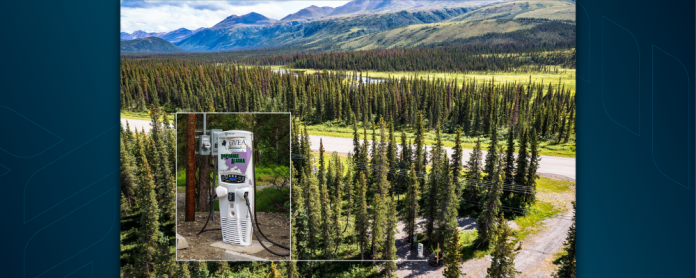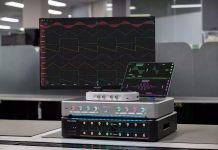
Media Release by Tritium
As the Biden Administration works toward a new goal of 50 percent electric vehicle (“EV”) sales by 2030, the importance of creating a robust electric vehicle charging network in all parts of the country is greater than ever. As part of their continued global growth and to address the need for an adaptable EV charging infrastructure in cold climates, Tritium has partnered with ReCharge Alaska to deploy direct current (“DC”) fast charging solutions in Cantwell, Alaska.
“This is an important milestone for the state of Alaska as we have seen significant growth in EV adoption here,” said Kris Hall, CEO at ReCharge Alaska. “Our goal is to open up Alaska and advance the EV transformation through the deployment of DC fast chargers. We believe that Tritium is the ideal partner for this project as their chargers are highly adaptable and built to be deployed in places with frigid temperatures.”
The project will utilize Tritium’s RT50 DC fast charger and become the only fast charging location listed on PlugShare between the cities of Fairbanks and Anchorage, two of the largest urban areas in Alaska.
“We are proud to showcase Tritium’s ability to deliver DC chargers that are uniquely adaptable to the extreme cold that can be experienced across Alaska’s vast landscape, while bringing charging solutions to parts of the country with limited EV infrastructure,” said Mike Calise, President of Americas at Tritium. “ReCharge Alaska is truly passionate about promoting electric mobility, and we are excited to provide convenient and fast charging to Alaska’s EV drivers.”
While Tritium rates its chargers for -31 degrees Fahrenheit (-35 degrees Celsius), Cantwell can get as cold as -45 degrees Fahrenheit (-42 degrees Celsius). To meet ReCharge Alaska’s needs, the Tritium team adjusted the glycol to water mixture in the liquid coolant to have a storage temperature of -65 degrees Fahrenheit (-53 degrees Celsius). In addition, ReCharge Alaska intends to build an enclosure with a 1kW heater to kick on at -28 degrees Fahrenheit (-33 degrees Celsius) to protect the charger.
“We are thrilled to support innovation to move electrified transportation forward,” said John Burns, President/CEO, Golden Valley Electric Association. “Alaska’s extreme temperatures are always a challenge. We are optimistic that Tritium’s resilient charging technology and ReCharge’s engineering expertise, will help to create a robust charging network throughout the state.”


















